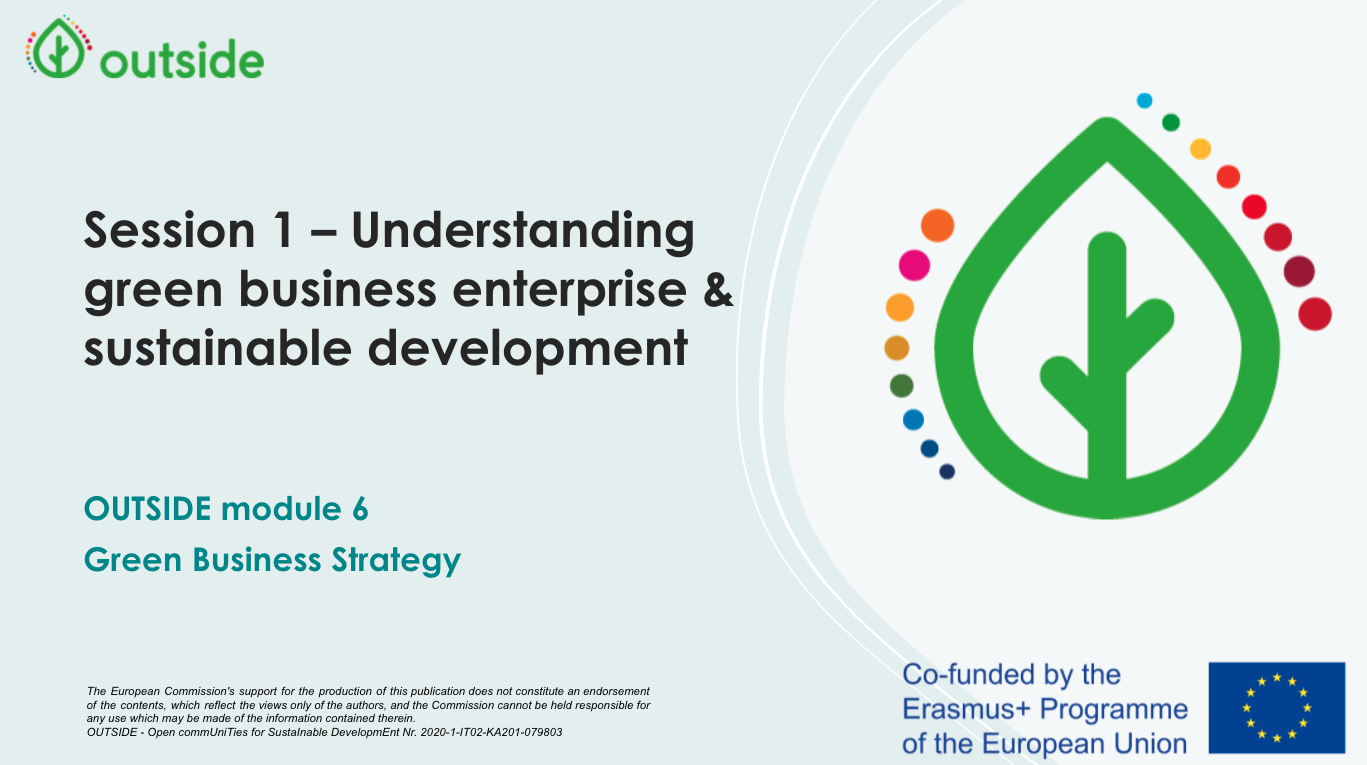Aim of the activities: for participants to work on their own or in groups to define a sustainable problem area, placing the problem in context and backing it up with evidence of research.
Activity: Teamwork and interaction - desk research, case study, and problem identification (30 minutes):
- Trainer asks participants to identify which SDGs are specifically about environmental issues and discuss them in an open forum.
- With reference to the SDG about environmental issues, participants are asked to work in groups and provide examples of business ideas, innovations, and green practices that they feel could help the achievement of the SDG. For instance:
- Life under water – Line fishing, fish farming vs trawling.
- Renewable and clean energy – Wind farms, solar panels.
- Responsible consumption and production – Recycling, local produce, biodegradable materials.
- Teams create presentation slides to define the sustainable issues identified, quantify the impact of the problem, and prioritise what needs fixing first.
Output: Group discussion, verbal presentation, and formative feedback. (45 minutes):
- Teacher to facilitate this session and encourage co-creation, inactivity.
- Findings should be listed under the following subheading: a) problem scope, b) impact on society, and c) problem ranking.
- Each team should appoint a spokesperson to present on behalf of their team.
- All team members should participate in the presentation and discussion.
- Participants should be encouraged to take a picture of the various contributions showcased (or share files), to add to their individual e-journal and reflect on in 100 words.
Feedforward: Trainer provides formative feedforward to teams (30 minutes)
- Teacher celebrates team success and acknowledges creativity and critical thinking.
- Teacher reminds participants of the link between SDG theory, concepts, and real-life scenarios.
- Teacher asks teams to discuss merits of team working and group-think.
|


No Comments